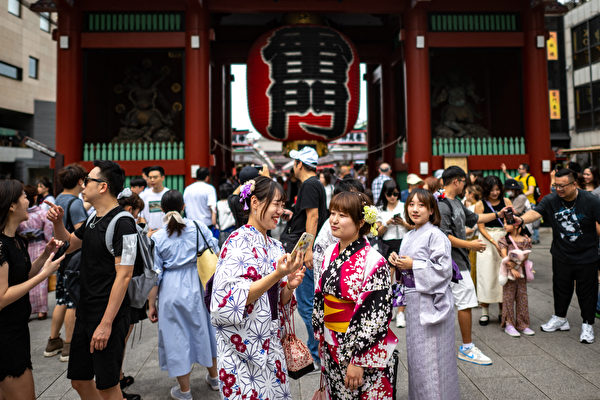Every year, the number of Western tourists traveling to Japan is increasing, and these tourists are often puzzled by a particular phenomenon in Japan: the absence of trash cans. They wonder how Japan manages to maintain such cleanliness and orderliness in public spaces without visible trash bins.
Earlier this year, the Japan National Tourism Organization (JNTO) conducted a survey among departing tourists to inquire about the challenges they faced during their travels. The top answer? The lack of trash cans. 22% of the tourists indicated that difficulty in finding places to dispose of trash was their biggest challenge while traveling.
According to CNN, there are various ways to address the issue of trash disposal, many of which are related to Japan’s unique customs. Eating while walking is considered impolite, to the extent that some cities in Japan have completely banned this practice. Instead, people are encouraged to take their street food purchases home or to the office to consume and then properly dispose of the trash. If they must eat something while out, most people carry a small bag with them to hold their trash until they can appropriately discard it at home.
The booming tourism industry has brought challenges to Japan’s public trash situation. Tourists from around the world flock to Nara, a city designated as a UNESCO World Heritage Site, located east of Osaka and accessible by a 45-minute Shinkansen ride. Despite Nara’s historic temples and Buddhist heritage, its most famous “residents” are the wild deer that freely roam the city and are known to graciously accept biscuits from visitors, often bowing in thanks, which makes them quite popular among tourists.
Now, trash has become a matter of life and death for the deer population: in 2019, nine deer died after ingesting plastic waste left on the ground by tourists. In 1985, to prevent deer from munching on trash cans, the bins in Nara Park were removed. Signs were posted throughout Nara warning people not to litter as consuming trash or food items other than their regular diet could harm the deer.
With the increasing number of tourists, it was evident that relying solely on signs was insufficient, as visitors did not adhere to the local custom of taking their trash with them. Subsequently, the city government reconsidered its policies and installed multiple trash bins near the busiest tourist areas.
These solar-powered bins are labeled with the English phrase “Save the deer.”
For some tourists, the lack of trash cans adds to the charm of Japanese culture. However, for others, it is an inconvenience that detracts from their holiday enjoyment. Paul Christie, CEO of the travel company Walk Japan, emphasizes respect and community values when addressing customer concerns about the lack of trash cans.
He told CNN, “Japanese people emphasize cleanliness and through the collective effort of society, their country has excelled in cleanliness.”
Research professor McMorran noted, “In the end, Japanese communities decided to avoid the hassle and costs associated with public trash bins, and Japanese consumers have embraced the practice of managing their trash when shopping.”
Japan strongly advocates for citizen recycling, which is one reason for the smaller trash bin sizes. McMorran explained that some cities have up to 20 types of recyclable items, making it challenging even for locals to properly segregate and dispose of all items correctly.
“The spotless public transportation system is a prime example, where all passengers respect the cleanliness of stations, trains, buses, and each other, taking appropriate actions,” McMorran added.

